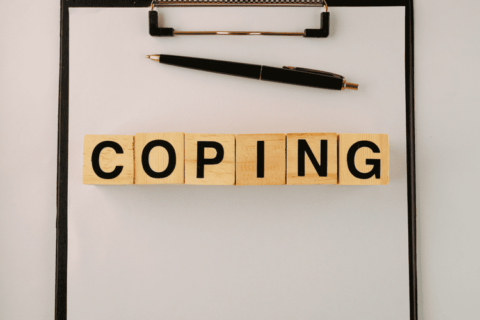Why You Should Prioritize Intentional Rest
“New Year, New You!” We see this phrase plastered in the media each January. When we consider New Years’ resolutions, we often focus our efforts on fitness goals. Gym memberships, diets, and other wellness fads quickly become challenging to keep up with after a few weeks. Maybe you’re already regretting cutting carbs or signing up for a 5k run. At BHA, we’d like to remind you that wellness is more than pushing your body to its limits and becoming the ultimate athlete. One of the best goals you could have is intentional rest – the act of taking your down time and sleep seriously.

Photo credit: Dan Burton on Unsplash.
The Benefits of Rest
Rest is not, as many people seem to think, a reward for being productive. Rest is a critical part of overall wellness and contributes to physical, mental, and emotional health.
Rethinking rest: Beyond just sleep
Sleep is vital. However, it’s not the only type of rest that humans need. Sandra Dalton-Smith, MD, states that there are seven types of rest that everyone needs:
- Mental rest – a time away from your draining challenges such as work or school. Use this time to engage your mind with something you enjoy like reading a book or solving a puzzle.
- Physical rest – the act of letting your body recover. Getting enough sleep and taking days off from your workout are crucial to your wellness.
- Creative rest- which means a rest to enjoy creativity, such as art, not a break from creativity
- Sensory rest – we live in a fast-paced world with everything at our fingertips. Sometimes, this can be too much for our nervous system. Unplug from your phone, listen to music at a lower volume, or take a walk in nature away from the hustle and bustle of city life.
- Social rest – even if you are an extrovert, we need time to ourselves to regenerate our mental wellbeing. Set aside intentional alone time, either on your commute, while you’re cooking a meal, or just spending a weekend at home.
- Emotional rest – it is important to give yourself a break from the difficulties of life. Treat yourself to your favorite beverage, say no to the friend that overstays their welcome, and don’t be afraid to set boundaries.
- Spiritual rest – many find comfort in spirituality. Regardless of your beliefs, allow yourself the space to connect with the things that give you meaning.
Everyone’s resting needs are different. Give yourself time to reset and respect others when they need time away from always “being on.” Don’t be afraid to see how new hobbies and creative outlets can fuel your sense of rest.
The scientific perspective: What research says about rest
All athletes know that they need rest days. Constantly working out without breaks leads to torn muscles and even a loss of performance or focus. It’s the same with day-to-day life. Constantly working, parenting, or studying without any time to replenish one’s energy is a surefire path to burnout.
A detailed study on human patterns and behaviors by researchers at Carnegie Mellon University discovered that long working hours and late shifts were detrimental to physical and mental health. However, simply taking time off work isn’t always the answer.
If employees are constantly thinking about work when they’re at home or on vacation, they could still suffer the ill effects of a lack of rest. Psychologists at the University of Konstanz noted that psychological detachment or completely switching off from the source of stress is necessary. If individuals can manage to do this, even for short periods of time, they can experience increased well-being.
The dangers of chronic sleep deprivation and burnout
While rest and relaxation are important, sleep must be the foundation of good rest habits. Chronic sleep deprivation can lead to:
- Depression
- Poor focus
- Obesity and other weight management issues
- Hypertension (high blood pressure)
- Heart disease
- Kidney disease
Bodies need sleep to heal, repair the immune system, and regulate thoughts and emotions. When poor sleep combines with a lack of rest throughout the daily routine, burnout can follow and people can experience symptoms of constant fatigue, mood destabilization, and ill physical health.
Defining Intentional Rest
It’s clear that we all need regular rest; however, very few of us are taking part in intentional rest. Intentional rest, sometimes called active rest, means deliberately setting aside time to relax, disconnect from work, or take part in mindful or fulfilling activities.
You saw above that there are seven types of rest. These connect closely to the six pillars of lifestyle medicine: Nutrition, physical activity, sleep, stress management, avoidance of harmful substances, and creating social connections. Embracing a lifestyle medicine approach helps address some of the factors that lead to intention rest, for example, improving sleep hygiene or taking steps to reduce mental loads.
Busting the ‘Always Busy’ Myth
We are taught from a young age that business equates to success. This simply isn’t true – if you find yourself “always on,” you may begin to feel burned out, and become less productive, more stressed, tired, and possibly depressed. As members of a capitalist society, it’s easy to fall into the trap of evaluating worth via productivity. Adam Waytz, author of The Power of Human, states that corporations can address this if they stop associating activity with achievement.
Why downtime is not wasted time
If more businesses did this, we’d see workers encouraged to take downtime. Rest and productivity are closely linked: Breaks that take you away from ‘busyness’ can actually improve productivity. However, this doesn’t just apply in the working world. If you ensure you’re taking time for yourself in your personal life, you may feel more fulfilled and closer to your friends and family. Sleep deprivation, in particular, creates feelings of loneliness and prevents the creation of meaningful connections.
Strategies for Implementing Intentional Rest in Daily Life
How do you gain these benefits of increased social connection and improved well-being? The first tip is to set time aside for resting. This might be by using reminders on a smart device or, if you’re trying to cut down on screen time, by using a manual alarm clock. Choose a time of day or week when you won’t be interrupted, and enlist the support of friends, family, or colleagues who will support you in taking this time.
Creating a restful environment
Trying to rest while surrounded by reminders of your responsibilities is pointless. Stress management strategies should include choosing a space that doesn’t have work-related paraphernalia and decluttering it as much as possible. Have snacks and drinks nearby. Set some mood music or have a mindfulness app set up ready to press play on once you take your rest break. Make your intentional rest as easy to access as possible.
Mindfulness and meditation techniques
As well as using mindfulness apps to take time out of your day, you can utilize some easy-to-learn techniques that help you disconnect from your routine. Progressive muscle relaxation means choosing a muscle group, tensing it, then purposefully relaxing it. Do this by starting at the with the muscles in your toes and work your way up your body all the way to the muscles in your forehead. As you cycle through each muscle group, you’ll learn how it feels to physically relax every part of your body. Other mindfulness techniques include deliberately finding things you can see, smell, hear, touch, or even taste, to activate the senses.
Setting boundaries for self-care
One of the most important ways to protect your well-being is to learn to say no. You don’t have to commit to every task put in front of you. You can pick and choose which jobs are good for you and your fulfillment and which you can set aside for later or simply not do at all. Learn to be kind but firm with your boundaries.
Intentional Rest: A Resolution You Can Keep
Committing to intentional rest can start with small steps. You could go to bed half an hour earlier or take 15 minutes a day to meditate or practice mindfulness and rest exercises. You could take a nature walk or reconnect with an aspect of your spirituality you’ve let lapse. You could even spend quality time with a beloved pet. It’s all about what matters to you as an individual and the ways your body and mind recharge their virtual batteries.
Need help getting started on a healthier lifestyle? Take steps to improving your wellbeing by scheduling an appointment with Brevard Health Alliance. We look forward to helping you make this new year a happy and healthy one.
















































































































































